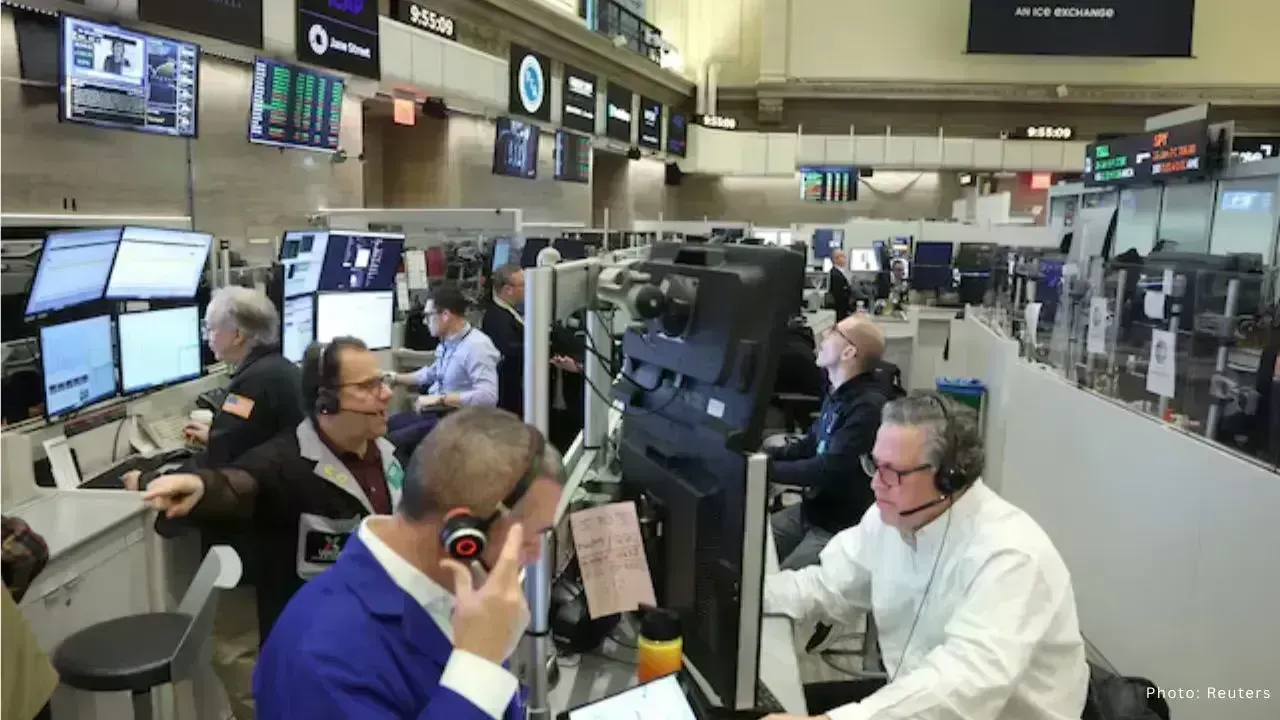You have not yet added any article to your bookmarks!

Join 10k+ people to get notified about new posts, news and tips.
Do not worry we don't spam!

Post by : Samjeet Ariff
Disclaimer: This article is for general financial awareness and should not be considered financial advice.
Compound interest is one of the most powerful wealth-building tools in the world, often described as earning “interest on your interest.” Unlike simple interest, which only earns returns on the principal amount, compound interest multiplies your money over time. The longer you keep your money invested, the faster it grows. This is why financial experts call it the engine behind long-term wealth. Whether you invest in savings plans, mutual funds, fixed deposits, SIPs, or retirement funds, the concept remains the same. The growth may seem slow initially, but with time, patience, and consistency, compound interest can transform small contributions into significant wealth.
Compound interest follows a simple formula: A = P (1 + r/n) ^ nt
A is the final amount, P is the principal, r is the interest rate, n is the number of compounding periods per year, and t is the number of years. Even if this looks technical, the main idea is simple: the more often your interest compounds, and the longer your money stays invested, the more wealth you accumulate. This formula applies to savings accounts, investment portfolios, pension plans, and even debt. Understanding this helps you make smarter financial decisions and avoid high-interest loans that compound against you.
Albert Einstein reportedly called compound interest the “eighth wonder of the world.” The reason is mathematical magic. When your money begins earning returns not just on your initial deposit but on the interest it already earned, growth becomes exponential, not linear. Exponential growth means your wealth snowballs. The first few years may look slow, but after a decade, curves begin to rise sharply.
For example, investing even a small amount like AED 500 a month can turn into a large fund if invested for 20 to 30 years. The secret is time and consistency. Many people try to get rich quickly, but the world’s wealthiest and smartest investors rely on long-term compounding, not shortcuts.
Time is the most important factor in compounding. If two people invest the same amount at the same interest rate, the one who starts earlier ends up with far more money—even if the difference is only a few years.
For example, imagine two investors:
Person A starts investing at age 25 and invests for 10 years.
Person B starts investing at 35 and invests for 25 years.
Even though Person B invests for a much longer period, Person A often ends up with more money because their funds got more time to compound. This is the power of early action.
In the UAE, long-term investment plans such as SIPs, national bonds, and index funds make early compounding extremely accessible. You don’t need a large income; you need discipline and time.
Regular contributions amplify compounding. Instead of investing a big amount once, you can build wealth steadily by adding small sums consistently. This is why Systematic Investment Plans (SIPs) are popular. They turn compounding into a habit.
When you add money regularly, your principal grows, so the interest earned grows too. In the UAE, investors often use monthly investment plans to generate steady growth. Even AED 300–500 every month becomes powerful when compounding works over 10–20 years.
The key is not how much you invest at once, but how consistently you invest.
Savings accounts also use compound interest, but the growth is usually slow because interest rates are low. If your goal is long-term wealth, investments generally outperform savings.
Here’s how compounding differs:
Savings accounts: Stable but low returns
Mutual funds / stocks: Higher returns with long-term compounding
Pension plans: Designed for slow, long compounding
National bonds: Low-risk compounding
Investments with higher returns compound faster, but they also come with risk. That is why long-term investing combined with compounding often produces the best results for beginners.
One of the most common misunderstandings is that you need a high income to grow rich. In reality, most people build wealth by starting small but early.
For example:
Investing AED 500 per month starting at age 25 can grow larger than investing AED 1,500 per month starting at age 40.
Time multiplies money, even more than the amount you contribute. When compounding works for decades, even small contributions grow into a large fund.
The Rule of 72 is a simple shortcut to understand how long your money takes to double with compounding.
72 ÷ interest rate = years to double your money
If an investment earns 8% a year, your money doubles in about 9 years.
The Rule of 72 helps you compare investment options. A higher compounding rate means faster doubling.
While compounding grows wealth when you invest, it destroys wealth when you owe high-interest debt. Credit card debts, personal loans, and late payments also compound.
This means:
Interest stacks on top of previous interest
Your debt grows if not paid quickly
A small debt can become very large over time
This is why the smartest financial strategy is to:
Avoid compound-interest debt
Build compound-interest wealth
Start early
Even if you begin with AED 100–300 per month, the long-term impact is massive.
Choose investments with consistent returns
Options include index funds, mutual funds, National Bonds, and pension plans.
Invest regularly
Treat your contributions like bills—non-negotiable.
Let your money stay invested
The longer you leave it untouched, the faster it grows.
Increase contributions as income grows
Even an annual increase of 5–10% boosts your future returns.
Avoid emotional investing
Compounding needs time; avoid withdrawing in panic.
Use tax-efficient or long-term financial plans
In the UAE, there are many long-term plans designed to encourage steady compounding.
AED 500 per month for 25 years at an 8% compounding rate:
Your total deposit: AED 150,000
Your final amount: Over AED 380,000
Compounding added more than double the amount you deposited.
Now imagine if you invested AED 1,000 or started earlier—results multiply.
Compounding rewards patience, not luck.
Many millionaires didn’t inherit wealth—they built it slowly through consistent long-term compounding.
The world’s biggest investment funds, pension programs, and retirement plans all rely on compounding. Wealth multiplies quietly, year after year. The earlier you begin, the faster you reach financial independence.
Compound interest is a simple concept, but its impact is massive. It is the foundation of smart financial planning and one of the easiest ways to build long-term wealth. Whether you are saving for retirement, building passive income, planning your child’s education, or simply aiming for a secure future, compounding transforms steady investments into large results.
#compound interest #wealth building #financial planning #long-term investing #Passive income










US Security Officials Drive S. Jaishankar 416 Miles During Shutdown
US security drove External Affairs Minister S. Jaishankar 416 miles during a government shutdown to

US Pledges $45M to Strengthen Fragile Thailand-Cambodia Truce
The US will provide $45 million in aid to help stabilize the fragile truce between Thailand and Camb

U.S.-India Trade Deal Falters as Modi Skips Trump Call Says Lutnick
U.S. Commerce Secretary Lutnick reveals India wasn’t ready for a trade deal after PM Modi avoided a

Boosting Northern Luzon Economy: Marcos Jr. Inaugurates Modern Camalaniugan Bridge
President Marcos Jr. opens the ₱2.3B Camalaniugan Bridge, enhancing connectivity, trade, and economi

Trump warns China on Taiwan, says any change would upset him
Donald Trump says Taiwan’s future depends on Xi Jinping but warns he would be unhappy if China tries

Gold Prices Slide as Strong Dollar and Futures Selling Weigh
Gold prices dipped as investors adjusted positions ahead of a commodity index reshuffle, while a str